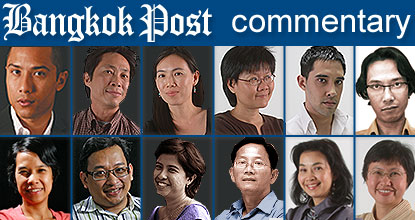
When Somdej Phra Buddhajarn (Kiaw Upaseno), the country's second most powerful Buddhist figure after the Supreme Patriarch, passed away over the weekend, the spotlight fell not only on who would succeed him, but also on the functionality of the Sangha Council itself.
The Supreme Patriarch, who will turn 100 in October, has been under close medical care for over a decade.
As the most senior monk in terms of years of ordination and ecclesiastic position, Somdej Phra Buddhajarn, or Somdej Kiaw as he was informally called, had the last say over the governance of the clergy. But this was not without political controversy.
His appointment as acting supreme patriarch during the Thaksin Shinawatra administration put him in a difficult position. The yellow-shirt movement accused him of siding with Thaksin and the red shirts, as well as the powerful Dhammakaya temple and its controversial leader whose teachings were ruled as a distortion of Buddhism by the Supreme Patriarch.
To depoliticise his role, the acting supreme patriarch position was invalidated and a committee was set up to represent the Supreme Patriarch instead. Somdej Kiaw, given his clout, was still elected committee chairman.
After his passing, all eyes are on his possible successors. As seniority in clergy titles and years of ordination are the main criteria, it is not surprising that the candidates are all over 80.
It is no secret that the Thai Theravada Buddhist clergy is mired in deep problems. Monastic misconduct is rife. So is temple corruption. There are no effective systems to recruit, monitor, train and punish those who abuse the system. The monks who pamper their superiors with material gifts are rewarded with titles or saved from punishment when their misconduct is exposed.
The abbots, meanwhile, enjoy absolute power over their temples' money and assets, as if the temples are their kingdoms. There is no use talking about accountability when temples can just forego the accounting system of temple donations or simply manoeuvre it as they see fit without external and professional auditing.
We simply cannot expect a group of monks aged over 70 and 80 who attend the Sangha Council meeting once a month between their hospital visits to be able to solve all these problems, can we?
The cleric elders' old age and frailty, however, is just a small part of the problem.
There have been on-and-off proposals by young monks to strengthen the governance of the clergy by setting up a professional secretariate staffed by a new generation of monks who would implement the elders' policies. The young monks would be appointed to the executive body on the basis of merit, while the central hierarchical system would remain intact.
All these proposals have been turned down. Even if they had not been, I don't think they would work, because the crux of the problem _ the feudal and autocratic structure of the clergy _ remains.
At present, the clergy operates in a system of absolute monarchy. It is a hierachical, feudal, top-down and autocratic system which severely punishes criticism and ostracises those who dare to challenge it.
When Thailand became a constitutional monarchy in 1932, the government scrapped the feudal hierarchy and titles, except in the Sangha Council.
High-ranking monks with feudal titles are still treated as if they are feudal lords. Senior monks want to keep this privilege. So too do the young monks, who just want to make the system more efficient.
Ask these young monks, and many of them are in favour of strengthening central control like their elders. They are similarly hesitant to accept external supervision, so forget about temple transparency and accountability. They are also equally demanding of state support _ financially, legally and politically _ to maintain the dominance of the Buddhist clergy instead of winning public faith through their own hard work.
When prevalent ethnic conflicts demand that society embraces cultural pluralism and inter-faith understanding, many of these young bloods are as nationalistic and paranoid about different faiths as their elders.
No powerful institutions want to carry out change by themselves. Pressure for change must come from outside. From us.
Let's start small by supporting only temples with a transparent accounting system with professional auditing. If we allow monks to pocket temple donations, we are just part of the problem.
Sanitsuda Ekachai is Editorial Pages Editor, Bangkok Post.
